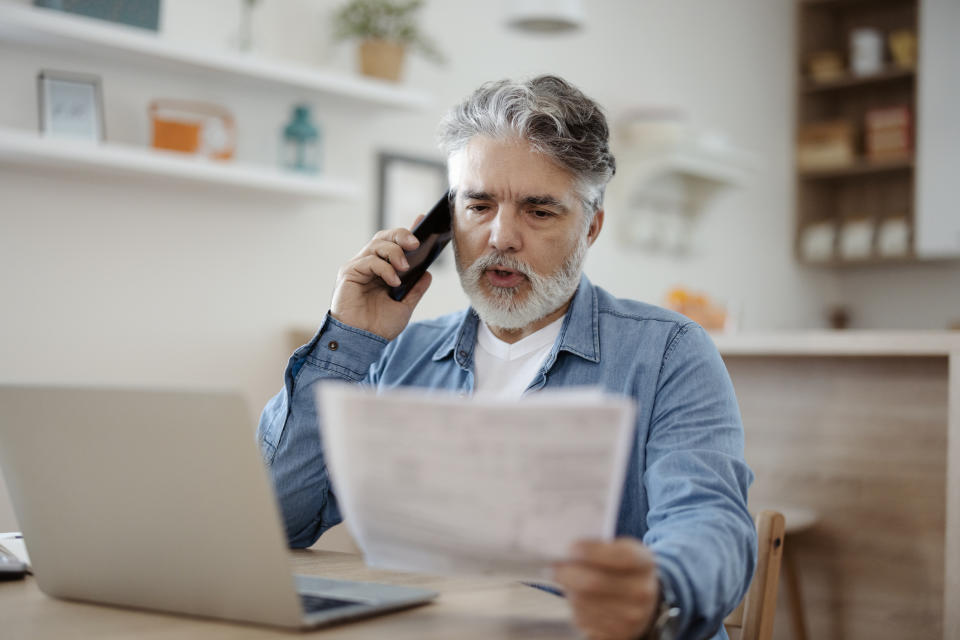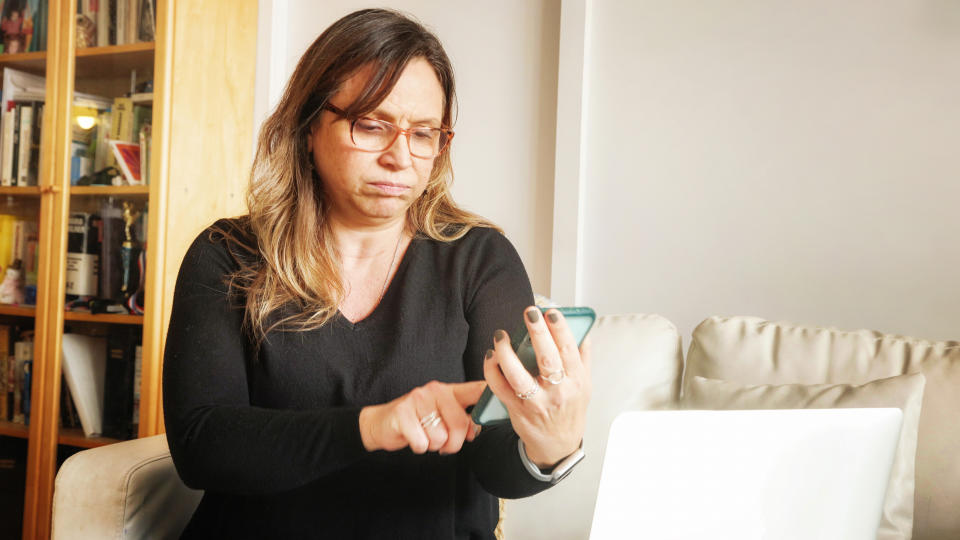“Can you hear me now?” “Is this you?” “Are you there?”
If you’re asked a question like this in a normal conversation, it’s polite to let the other person know that you hear them loud and clear. But if you’re asked this at the beginning of a call from a random phone number, you should be wary.
That’s because these questions are the signs of a fast-growing scam, according to a new alert from the Better Business Bureau, a nonprofit that tracks bad advertisements and customer complaints in North America.
Since mid-March, there has been an uptick in people reporting that they are concerned about this scam, said Melanie McGovern, the BBB’s director of public relations and social media.
Here’s how the scam works. A stranger will start the call asking, “Can you hear me?” to get you to respond “yes.” They may keep you on the line by pretending to be a government official or a bank representative, but often they hang up shortly after you confirm that you are listening. That’s because their goal is to get you to say “yes” so they know there is a person on the other line.

And now that they know you might respond in the future, the scammer may continue to contact you and then try to “trip you up” when you’re not as focused on what they’re saying, McGovern said.
A random “can you hear me?” question should be your first red flag that this unsolicited call could be a scam, said Kelly Richmond Pope, a professor of forensic accounting at DePaul University and the author of “Fool Me Once: Scams, Stories, and Secrets From the Trillion-Dollar Fraud Industry.”
A conversation with a random number that starts with “can you hear me?” is suspicious “because it’s so outside of the typical conversational cycle,” Pope said.
But before you panic, you should note that the BBB said there have been no reports of monetary losses after these “can you hear me?” calls.
The nonprofit suggested that in a worst-case scenario, scammers may use a recording of you saying “yes” to authorize charges on your phone. This is known as a cramming scam, where a bad actor “crams” unauthorized service charges onto your bills once they have your information.
“You never know how your audio voice of you saying ‘yes’ can be used, spliced in any kind of call with a bank or call with a credit card company to open a line of credit,” Pope said.


But Amy Nofziger, the director of victim support for the AARP Fraud Watch Network, said that the “can you hear me?” question on its own does not warrant significant panic.
She stressed that there has been no evidence from AARP databases tying a response to the question to cramming or monetary fraud. “Nobody in here is saying, ‘I lost $50,000,’ in a supposed ‘can you hear me?’ scam,” she noted.
Instead, Nofziger said that consumers should be more concerned about impostor or gift card scams, which are actually known to result in big monetary losses and emotional devastation for victims. So if a caller keeps you talking beyond that “can you hear me?” question, there is more cause for concern.
“Are they asking you for personal information?” Nofziger said. “Are they asking you for crypto ATM? Are they asking for a prepaid gift card? Well, then it’s 100% a scam.”
Here’s what to do when you get a ‘can you hear me?’ call from an unknown number.
It can be stressful to wonder whether you have compromised your privacy and personal information. But there are steps you can take for your peace of mind:
Stay calm.


“I’ve seen people in a panic because they’ve said ‘yes’ to someone asking, ‘Can you hear me?’ And we’ll have to talk them down,” Nofziger said of those contacting the Fraud Watch Network.
Scammers win when they get you riled up with fear and anxiety, because that’s when you stop listening to common sense. “We don’t want people to operate in this fear mode,” Nofziger said. “We want people to operate in the empowerment mode.”
So if a random phone call worries you, take a breath before automatically giving some stranger what they want to know.
Instead of answering “yes” when the stranger asks if you hear them, turn the question back on them and state, “Why do you ask?” Nofziger suggested.
That way, “you take control back of your phone and your device,” she said.
Be on guard even if they claim to know you.


If the caller says your name, you should not let down your guard. A lot of information can be gleaned from public records and social media.
Scammers will want to establish familiarity with you so that you “give up even more information than you normally would,” Pope said.
Don’t engage.


One way to stop yourself from saying more than you should is to just let a phone call from an unknown number go to voicemail. That way, you have more time to assess if it’s legitimate.
McGovern said that she does not recommend trying to talk with someone you suspect is a scammer. If you do, “they’re going to keep calling you because they know you’re a live number,” she explained.
If it turns out to be important call, like a doctor’s appointment, “they’re going to leave you a message,” McGovern said.
Do your due diligence on your accounts.


If you are worried about potential fraud, go through your bills and credit card statements to check for unauthorized charges. If fraud did occur, you can file a consumer complaint with your local attorney general’s office.
You can also be proactive. If you are concerned that you compromised your information, McGovern suggested contacting your bank and credit card company to say: “Hey, I’m just very nervous about this. What can I do to mitigate anything down the line?”
This post originally appeared on HuffPost.
Source Agencies



